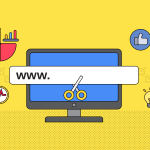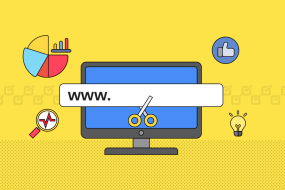
It’s projected that businesses will spend over $850 billion on enterprise software in 2023.
Why are companies throwing so much money at software?
Well, whether it’s productivity, security, or customer relations, there’s software out there to make your job easier and more effective. The future looks grim for businesses that can’t keep up with trends in technology.
The hardest part is deciding which of these tools are essential and which are optional. In this article, we’ll define three main software types your business will benefit from.
#1. E-commerce software
In the modern era, businesses that don’t adopt e-commerce fall behind. If you want your business to compete with the big guys, you need e-commerce business tools.
When we talk about e-commerce software, we’re not just talking about having a flashy store. You have to build your online business with standard tools like:
- A responsive and intuitive business website;
- Secure payment platforms for client security;
- Engaging content marketing strategies;
- Accessible customer support methods.
Customer Relationship Management (CRM) tools are especially important for understanding your business-to-customer relationship. For smaller businesses, a CRM is crucial for growth in a business’s early stages. With the help of Sales Pipeline CRM, businesses can effectively track and prioritize leads, ensuring no opportunities slip through the cracks, ultimately leading to enhanced sales and revenue growth.
E-commerce tools are what separate the leaders from the pack. With deeper insights into customer behavior and persuasive marketing materials, your business will thrive.
#2. Cybersecurity software
Cybersecurity tools are some of the most underrecognized business software types. We often don’t view cyber threats as productivity destroyers until an attack stops your business operations for a whole work week.
The internet is a dodgy place, and as a modern business operating online, you need to be prepared to side-step these threats. The bare minimum cybersecurity tools you should be running are:
- Secure in-built or upgraded firewalls;
- Premium antivirus (“free” antivirus just won’t cut it);
- Virtual Private Network (VPN) to ensure all business data is encrypted;
- Password manager to create and store advanced passwords;
- “Safe Search” browsers to protect staff from malicious sites.
IBM found that 83% of companies will face a cyber attack, with an average cost of $9.5 million per breach in the US. So for the majority of companies, there’s no question that they will undergo a cyberattack. Prevention is the strongest defense.
#3. Organizational software
Finally, organizational software is the fuel to your business’s productivity fire. Without them, half of your work day is spent searching for data. Organizational business software centralizes your workflow, so you can prioritize your time.
These powerful tools come in the form of:
- Time-tracking software for accurate pay sheets;
- Project management software to streamline big projects;
- Accounting software for bookkeeping, payroll, and tax;
- Business communication software;
- Other sales and marketing tools.
Ultimately, these are the tools that make your work life easier, so why wouldn’t you take advantage of them?
Conclusion
By now, it’s no surprise that specific software and tools give businesses a leg up on the competition.
But not everyone is aware that businesses of all sizes can receive the same boosts to sales, customer relations, and productivity.
All that’s left to ask is: what type of software is missing from your business’s toolbelt?







